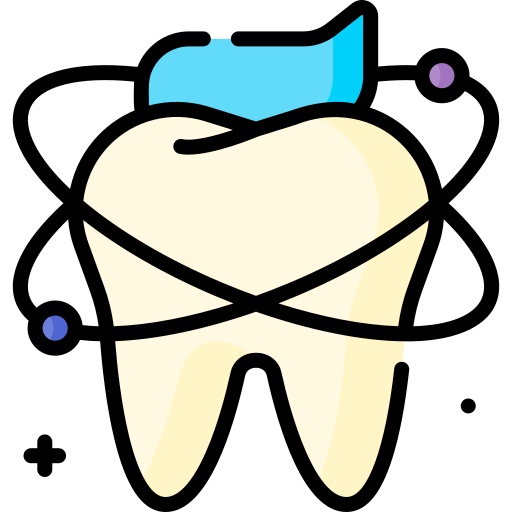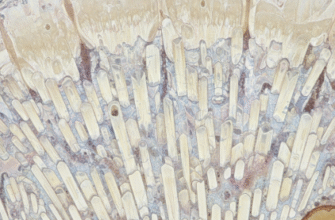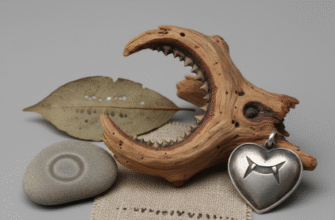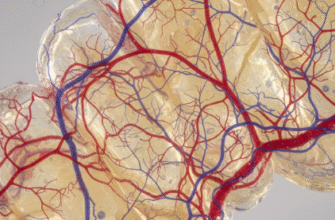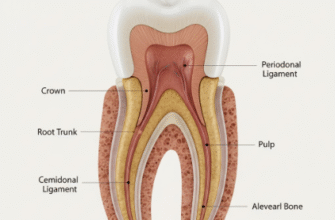It’s a surprisingly common thought, whispered among parents or sometimes even casually dismissed: ‘Oh, they’re just baby teeth. They’ll fall out anyway, so their health isn’t a top priority.’ This sentiment, while perhaps understandable on a superficial level, couldn’t be further from the truth. The notion that primary teeth, also known as deciduous teeth, are merely temporary placeholders with little consequence to a child’s long-term well-being is a dangerous myth. This misconception can lead to unnecessary pain for children, more complicated and costly dental issues down the road, and can even impact a child’s overall development and confidence. It’s time to set the record straight and understand why those little pearly whites deserve just as much care and attention as their permanent successors.
The Vital Roles of Baby Teeth
Thinking of baby teeth as just ‘practice teeth’ is a significant underestimation of their importance. They perform several crucial functions during a child’s formative years, roles that extend far beyond simply filling space until the ‘real’ teeth arrive. Ignoring their health is like ignoring the foundation of a house because you plan to redecorate the upper floors later; the structural integrity of the whole building is at stake.
Essential Space Maintainers
One of the most critical jobs of baby teeth is to hold space in the jaw for the permanent teeth that are developing beneath the gums. Each baby tooth reserves a specific spot for its corresponding adult tooth. If a baby tooth is lost too early due to decay, infection, or injury, the neighboring teeth can drift or tilt into the empty space. This can cause a traffic jam for the incoming permanent tooth, leading to it erupting crooked, becoming impacted (stuck in the jaw), or even being blocked from erupting altogether. Such problems often necessitate orthodontic treatment, like braces, later in life – an intervention that could potentially have been avoided with good early dental care.
Key Players in Speech and Nutrition
Try saying ‘thirty-three thirsty thieves’ without your front teeth. It’s tricky! Teeth play an indispensable role in clear speech development. Children learn to form sounds and words by using their tongue, lips, and teeth in coordination. Missing or painful teeth can hinder this process, potentially leading to speech impediments that may require therapy to correct. Furthermore, healthy teeth are essential for proper nutrition. Chewing food thoroughly is the first step in digestion. If a child has cavities, sore gums, or missing teeth, they might avoid certain healthy foods that are harder to chew, like fresh fruits and vegetables, potentially impacting their growth and overall health. They might opt for softer, often less nutritious, processed foods, which can contribute to other health issues, including further dental decay.
Building Blocks for Confidence
A healthy smile contributes significantly to a child’s self-esteem and social development. Children can be very aware of their appearance, and dental problems like visible decay or missing teeth can make them self-conscious. They might be hesitant to smile, laugh, or speak up in social situations or at school. Nurturing a healthy smile from a young age helps build confidence that can last a lifetime. Early positive dental experiences also help in establishing a comfortable relationship with dental care, reducing the likelihood of dental anxiety in adulthood.
The Ripple Effect: Oral Health and Overall Well-being
The idea that what happens in the mouth stays in the mouth is another fallacy, especially when it comes to children. Oral health is intrinsically linked to overall health. Untreated dental decay is essentially a bacterial infection. If left unchecked, this infection can cause significant pain, leading to sleepless nights, difficulty concentrating in school, and general irritability. In severe cases, dental infections can spread, leading to facial swelling or more serious systemic health issues that might require emergency care. While such severe outcomes are less common with diligent care, the risk is always present when dental problems are neglected.
Chronic dental pain can also affect a child’s appetite and nutritional intake, as mentioned earlier, which in turn can impact their energy levels, immune system, and ability to fight off other illnesses. School performance can suffer not only due to pain and distraction but also because of missed school days for dental emergencies or treatments that could have been prevented with routine care.
It’s a well-established fact that primary teeth serve critical functions beyond just chewing. They are essential for proper speech development and for guiding the eruption of permanent teeth into their correct positions. Furthermore, untreated decay in baby teeth can lead to painful infections that may affect a child’s overall health and well-being, and even damage the developing permanent teeth underneath.
“They’ll Fall Out Anyway” – A Closer Look at the Fallacy
This is perhaps the most common justification for downplaying the importance of baby tooth health. While it’s true that baby teeth are eventually replaced, the process is gradual, typically spanning from around age six to age twelve or thirteen. This means a child relies on their primary teeth for many years. A cavity that appears in a baby molar at age three might need to serve that child for another seven to nine years before its permanent successor is ready to erupt. That’s a long time for a small problem to potentially become a big one.
Protecting the Permanent Successors
Moreover, severe decay or infection in a baby tooth can directly affect the developing permanent tooth beneath it. The infection can spread to the area around the permanent tooth bud, potentially causing developmental defects in the enamel of the permanent tooth. These defects, known as Turner’s spots or Turner’s hypoplasia, can appear as discoloration (white, yellow, or brown patches) or pitting on the surface of the adult tooth once it erupts. This means neglecting baby teeth can pre-damage the very permanent teeth parents are waiting for.
Establishing Lifelong Healthy Habits
Childhood is the ideal time to establish good oral hygiene practices that can last a lifetime. When parents prioritize their children’s dental health from infancy, they are not just protecting baby teeth; they are teaching valuable life lessons. Regular brushing, learning to floss (when age-appropriate), eating a balanced diet low in sugary snacks and drinks, and visiting the dentist regularly become normal, accepted parts of life.
These early routines are powerful. Children who grow up with a strong foundation in oral hygiene are more likely to carry these habits into adolescence and adulthood, reducing their risk of dental problems throughout their lives. Conversely, if dental care is an afterthought in childhood, it can be much harder to instill these habits later on.
The First Dental Visit and Beyond
Professional dental organizations often recommend a child’s first dental visit by their first birthday or within six months of their first tooth erupting. These early visits are often more about education and prevention than intervention. The dentist can provide parents with guidance on cleaning their child’s teeth, discuss dietary habits, assess fluoride needs, and monitor oral development. Early, positive experiences at the dental office can also help prevent the development of dental phobias, making future visits less stressful for both the child and the parents.
The Hidden Costs of Neglect
Ignoring minor dental issues in baby teeth often leads to more extensive and expensive treatments later. A small cavity that might have been easily and inexpensively filled can progress, requiring a larger filling, a pediatric crown, root canal treatment (yes, baby teeth can need root canals!), or even extraction. These procedures are more complex, time-consuming, and costly than preventive care or early intervention. There’s also the emotional cost to the child, who may have to endure pain and more invasive procedures.
Beyond the direct financial costs of dental treatment, there are indirect costs to consider. Parents may need to take time off work to deal with dental emergencies or attend multiple appointments for extensive treatment. As mentioned, children might miss school, impacting their education. Investing in preventive care and early treatment for baby teeth is an investment in a child’s overall well-being and can save significant expense and distress in the long run.
Making Oral Care a Positive Experience
Parents play a crucial role in shaping their child’s attitude towards dental health. Here are a few general tips:
- Start Early: Gently wipe your baby’s gums with a clean, damp cloth even before teeth appear. Once the first tooth erupts, start brushing twice a day with a rice-grain-sized smear of fluoride toothpaste, increasing to a pea-sized amount around age three.
- Make it Fun: Use colorful toothbrushes with favorite characters, play a special brushing song, or brush together as a family. Turn it into a game rather than a chore.
- Lead by Example: Children often mimic their parents. If they see you prioritizing your own oral hygiene, they are more likely to understand its importance.
- Watch the Diet: Be mindful of sugary snacks and drinks, especially between meals. Offer water instead of juice or sugary beverages.
- Regular Check-ups: Don’t wait for a problem to arise. Regular dental visits allow for early detection and prevention.
Conclusion: Invest in Those First Smiles
The myth that kids’ dental health isn’t that important because baby teeth are temporary is simply untrue and potentially harmful. These first teeth are foundational to a child’s ability to eat well, speak clearly, develop confidence, and maintain good overall health. They are also crucial for ensuring that permanent teeth come in correctly. By understanding their significance and committing to good oral hygiene practices from the very beginning, parents can protect their children from unnecessary pain and complex dental problems, setting them on a path towards a lifetime of healthy smiles. Those little teeth might be small, but their impact is mighty and long-lasting.
